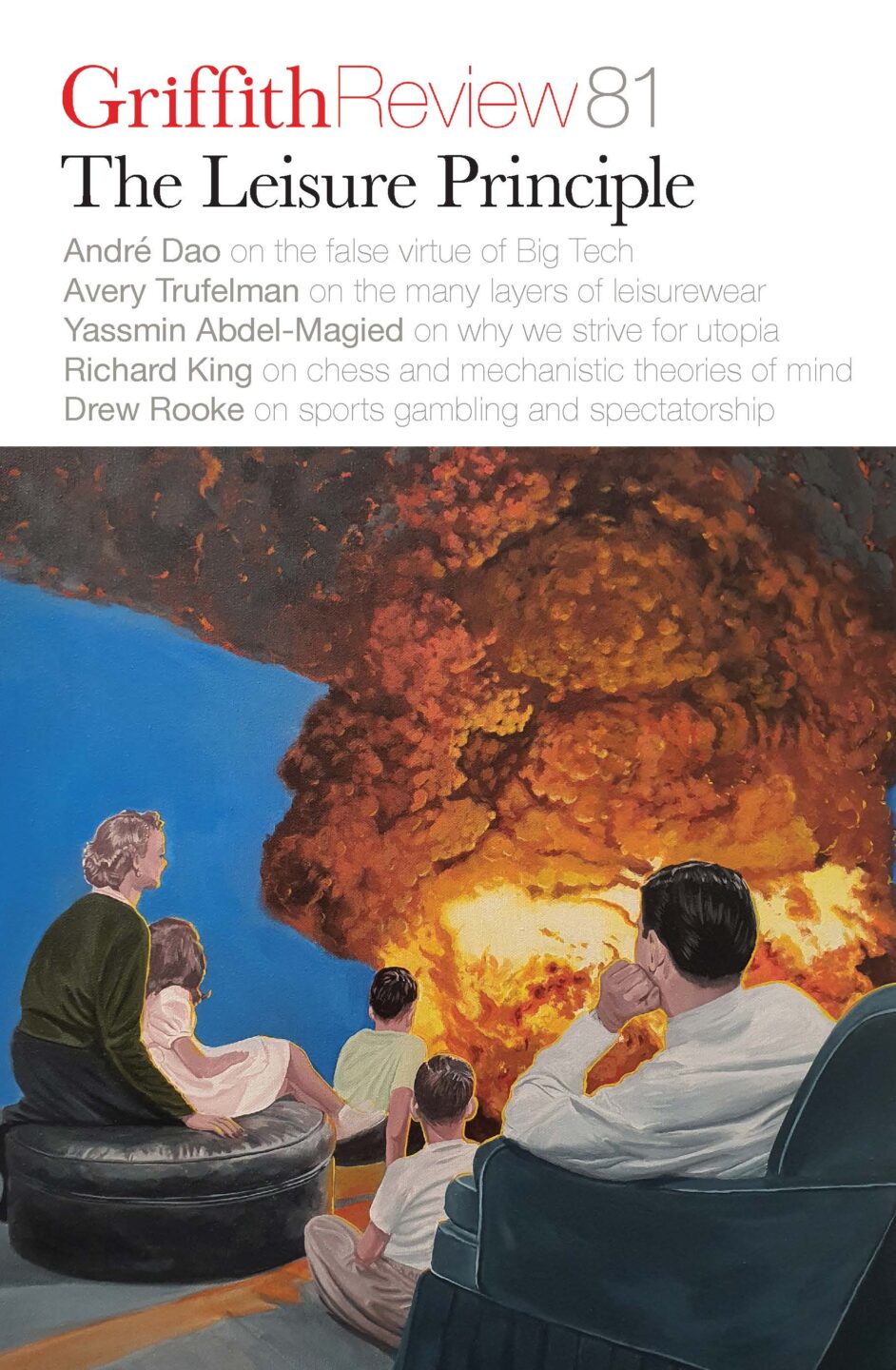Featured in

- Published 20230801
- ISBN: 978-1-922212-86-3
- Extent: 200pp
- Paperback (234 x 153mm), eBook


Already a subscriber? Sign in here
If you are an educator or student wishing to access content for study purposes please contact us at griffithreview@griffith.edu.au
Share article
About the author

Daniel Ray
Daniel Ray’s work has previously appeared in Westerly, Overland, Island, Cordite, Voiceworks and Cicerone Journal’s 2020 anthology, These Strange Outcrops. He is currently studying...
More from this edition

Upping the ante
Non-fictionAs it turned out, Centrebet’s move online – coupled with the many other betting innovations it pioneered – led exactly to where Daffy hoped it would: a prodigious pot of gold. He says the company went from taking ‘fifty or sixty bets in one day’ to taking ‘five or 600,000 bets on a Saturday night from all over the world’. By the turn of the millennium, its annual turnover was in excess of $100 million and it had become – in the words of Piers Morgan, its then general manager – ‘one of the leading sports betting organisations in Australia, if not the world’.

The rise and decline of the shopping mall
FictionPerhaps it is instructive to consider how archaeologists of the future may conceive malls. How might they seem, these empty labyrinths – like rituals that had to be endured in order to receive goods and services? As great monoliths, colosseums constructed for our entertainment? As places of worship? Or perhaps malls will seem more like pyramids do to us: mysteries to be unravelled when the tracks of global trade and communication have faded...

Women’s work
Non-fictionIn the 1990s, increasing fiscal and social rationalisation shifted responsibility for leisure from the state to the individual and from the public to the private sphere. Leisure studies, with its emphasis on providing research and data to inform leisure quality, accessibility and access, was rationalised to enhance the ‘bottom line’ of universities that were now attuned to the pragmatic desires of industry sectors.